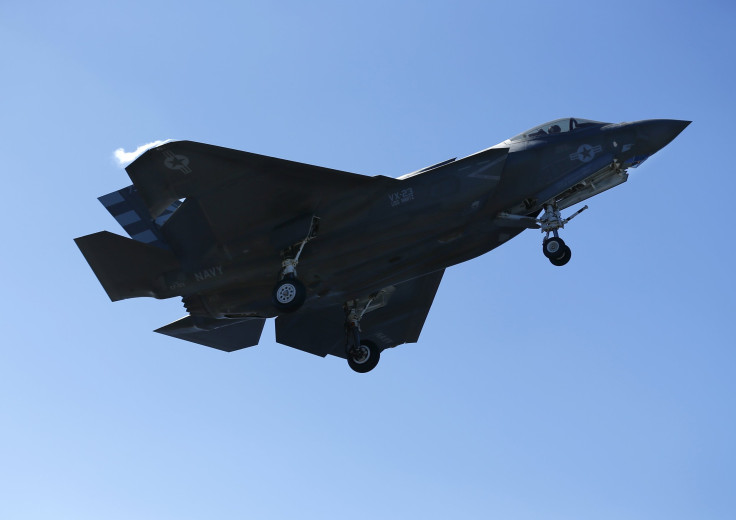US Invasion Of Mideast Could Boost Defense Industry

Calls by 2016 Republican presidential candidates and others for the United States to send ground troops to defeat the Islamic State group have elicited mixed reactions from the public and the Pentagon. But one group has responded enthusiastically over the past year to the prospect of a more aggressive war posture: For private defense contractors, a U.S. military invasion of Syria and Iraq presents a lucrative business opportunity.
Last week, the Intercept reported that Lockheed Martin Executive Vice President Bruce Tanner had told a group of investors that the aerospace manufacturer expects to see “indirect benefits” from the conflict in Syria. The firm, which is the single-largest recipient of U.S. defense contracts, is not alone in suggesting that more war could boost its bottom line.
In late October, the CEO of defense contractor Fluor Corporation said in an earnings call that the military is “probably going to have a few more people in Iraq, and potentially, Syria” -- a situation that “creates some opportunity for us.”
During a corporate earnings call by Kratos Defense & Security Solutions in August, an official of the Wisconsin state pension system (which is a shareholder in the firm) asked CEO Eric DeMarco if Kratos foresaw increased market opportunities in the areas of "unmanned aircraft and railgun, hypersonic, missile radar, satellite-com, and electronic warfare."
“Yes,” DeMarco responded. “On every one that you just mentioned, it has changed in a positive way in the past three to six months. And it is happening industrywide because of the shift or the pivot of the DOD [U.S. Department of Defense] from asymmetric warfare or warfare fighting ISIS or fighting terrorists, to nation-state warfare.” (ISIS and ISIL are alternative names for the Islamic State group.
Stuart Bradie, CEO of the technology and engineering firm KBR Inc., told shareholders in April that his firm was already receiving new government business and could get more if the military becomes more active in the Middle East.
“We’re seeing some growth in the services in Iraq as we support the U.S. military and what’s happening with ISIS,” he said. “We expect that to grow a little bit further and with opportunities to grow even further going forward.”
In an earnings call Nov. 12, the day before the Paris attacks, the CEO of Griffon -- parent company of a defense technology contractor -- predicted that defense spending is going to rise.
“We believe that we are at more of a bottom in the cycle and that defense spending over the next five years is more likely than not going to look better than what it’s looked like over the last five years,” CEO Ronald Kramer told investors. He added that “we’ve stuck to our intelligence surveillance, reconnaissance mission” and that “the international opportunities are all ahead of us.”
Over the last year, big money flowed to lawmakers from defense contractors seeking larger Pentagon budgets and looking to shape proposed reforms to the military procurement process. The top two political action committees for federal lawmakers this year have been those run by Lockheed Martin and Honeywell, according to the Center for Responsive Politics.
The defense industry has been responsible for more than $23 million in donations to members of Congress since the 2014 election cycle -- with top recipients including prominent proponents of a ground invasion such as Republican Sens. Lindsey Graham of South Carolina and John McCain of Arizona.
The industry has also spent $95 million on lobbying in 2015 alone, as contractors have pushed for an end to budget caps passed by Congress in 2013. As the debate over an invasion has intensified, the Center for Public Integrity reported that lobbying expenditures by major defense contractors in 2015 were “more than 25 percent higher than the amount they spent in the same quarter of 2014.”
© Copyright IBTimes 2024. All rights reserved.






















